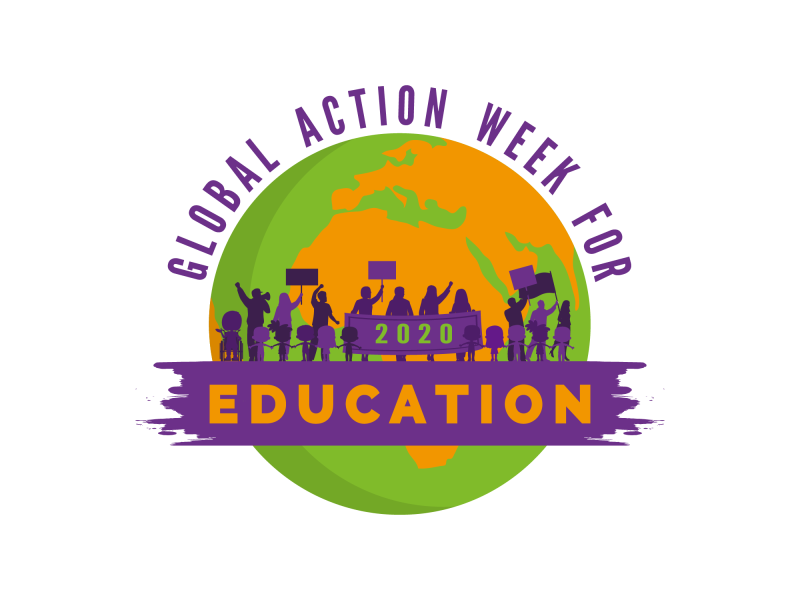Global Action Week For Education 2020

10 YEARS LEFT TO 2030: CIVIL SOCIETY’s SOLUTIONS, RECOMMENDATIONS AND PLANS OF ACTION TO REACH SDG4: A WEEK OF ACTIONS
GCE’s Global Action Week for Education in 2020 takes place between the 26th April and 2nd of May. This year’s theme has been chosen through an online consultation with the membership.
The Global Campaign for Education just turned 20, and the Global Action Week for Education is in its late teenage years, celebrating 17 weeks for education since 2003. The membership survey gave us a mandate to go back to what made GAWE successful in the previous years: people mobilisation. There is a strong will to have millions of people around the world in the street to support our demand for free, public, quality and inclusive education for all. In a digital age, it is also important to have the tools and the power to mobilise online, to support and allow those who cannot walk the streets to fully participate.
The main topic chosen “10 years left to 2030: Civil society’s solutions, recommendations and plans of action to reach SDG4” echoes well with the HLPF focus for 2020, looking at all the SDGs “Accelerated action and transformative pathways: realizing the decade of action and delivery for sustainable development”. The GAWE theme allows us to creatively strengthen the education movement around the idea of a civil society plan of action – through a week of actions!
Context
Compared to previous years, the chosen focus doesn’t not refer to a thematic or programmatic area; it is rather geared towards actions and recommendations. This year provides an opportunity for the education movement to start a 10 year countdown to the achievement of SDG4. This is the year to mobilise citizens voices in order to wake up governments and world leaders to act now for Education. This year can be analysed through the lenses of the need to strengthen civil society through coordinated actions. Numerous voices are rising to alert about a “learning crisis” and the need for “accelerated actions”. This is the time for civil society to step up and define its “accelerated pathway” and preferred solutions. A strong common action will also support those whose voices are more and more excluded or threatened at the local or national level. Still, today, despite numerous commitments towards collective and inclusive participation by governments and the international community, a number of national education coalitions and various civil society organisations are excluded from planning, implementation and monitoring of SDG4. If civil society cannot effectively participate in official instances, its voice still needs to be heard – through the people themselves.
Suggested focus:
One of the core theme and area of focus in 2020 throughout the membership would be around what Education International recently labelled as a “ global education funding crisis”.
Today, there are still around 260 million out-of-school children and 773 million illiterate adults. That’s one billion left behind. It is estimated that to reach SDG4, and bring the 1 billion into a quality and inclusive education system, annual investments in education need to double from $1,2 to $3 trillions. Many governments still don’t reach the international benchmark of 20%/ 6% budget share for education which is a necessary step to achieve SDG4. At the same time, every year according to the IMF, between $700 and $800 billions government revenues is lost due to tax dodging, tax avoidance and illicit financial flows by multinational corporations and wealthy individuals are lost to tax havens.
It’s time for governments and world leaders to truly act on their commitment, embracing the difficult issue of taxation at the national, regional and international level, and to step up their investment in education.


